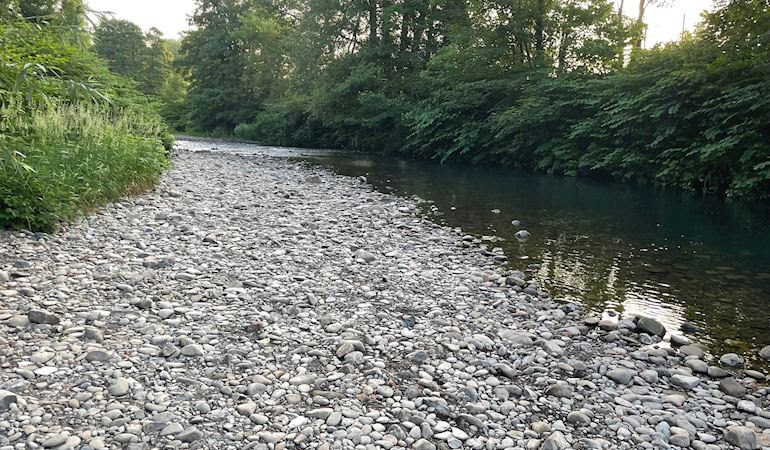Low rainfall sees Wales enter “prolonged dry weather” status

Members of the public and businesses across Wales are being urged to use water wisely and “manage this precious resource” as the dry spell continues.
In response to the lengthy period of warm and dry weather, Natural Resources Wales (NRW) has officially announced that the whole of Wales has entered “prolonged dry weather” status.
The decision, made based on hydrological and environmental factors, reflects concerns over the impact of high temperatures and scarce rainfall on rivers, groundwater levels, wildlife, and the broader natural environment across Wales.
Prolonged dry weather is an increasingly common occurrence due to the accelerating effects of climate change.
It arises when rainfall remains significantly below average for an extended period, leading to decreased river flows, depleted reservoir and groundwater levels, as well as the drying of land and soils.
Despite recent rainfall triggered by summer thunderstorms, river flows throughout Wales currently remain low for this time of year.
Groundwater levels have been receding, with some sites experiencing exceptionally low levels, and soils have become drier than expected.
May 2023 witnessed only 41% of Wales’ long-term average (LTA) rainfall (1981-2010), marking it as the second driest May in the past 25 years, with only 2020 being drier.
As of June 19, Wales has received only 32% of its LTA rainfall for June.
NRW has already been grappling with the repercussions of prolonged dry weather on the environment, including reports of distressed fish trapped in pools in lower river reaches due to low flows and higher river temperatures.
The organisation has issued advice to anglers during hot temperatures to mitigate these impacts.
Additionally, there are concerns regarding protected sites such as fens, peatlands, heath, and grasslands, which serve as habitats for numerous species.
NRW officers are collaborating with fire and rescue services to combat multiple grass and wildfire incidents on the land they manage.
Prolonged dry weather also poses risks to crop and grass growth, prompting NRW to urge farmers to adhere to the dry weather guidance available on their website.
Water companies, following a wet winter, have reported that reservoir levels are currently in a favourable state for this time of year.
Nevertheless, NRW supports their advice for people across the country to use water wisely and contribute to safeguarding water supplies and the environment.
Natalie Hall, Sustainable Water Manager at NRW said:
“The prolonged hot and dry spell has led to concerns about the impacts low rainfall, river and groundwater levels, as well as drying up of soils, are having on our ecosystems and habitats, land management and agricultural sector. As such, we have taken the decision to move the whole of Wales into prolonged dry weather status.
“For us, this means stepping up our actions and monitoring across Wales to help mitigate the impacts on the environment, land, water users and people, and responding to environmental incidents.
“Our drought teams will continue to meet regularly to review the status, and will work closely with our partners to ensure we take appropriate action to reduce impacts on the environment and other water users across Wales.
“To ensure water can continue to be supplied without damaging the environment, the public and businesses across Wales are being urged to use water wisely and manage this precious resource.”
NRW’s decision to declare prolonged dry weather status was shared with the Wales Drought Liaison Group earlier today.
The group is chaired by the Welsh Government and made up of senior decision-makers from NRW, the Met Office, water companies, Public Health Wales, farming unions and local authority representatives.
The areas affected by today’s change in status from normal to ‘prolonged dry weather’ include the River Dee.
NRW says it is engaging closely with the Environment Agency in respect to the cross border catchments.
Members of the public should report any environment incidents to the NRW 24/7 hotline on 0300 065 3000.
Some areas may also be at a higher risk of fires. If you see a wildfire, get to a safe place, call 999 and ask for the Fire Service.
Spotted something? Got a story? Email: [email protected]
Latest News
